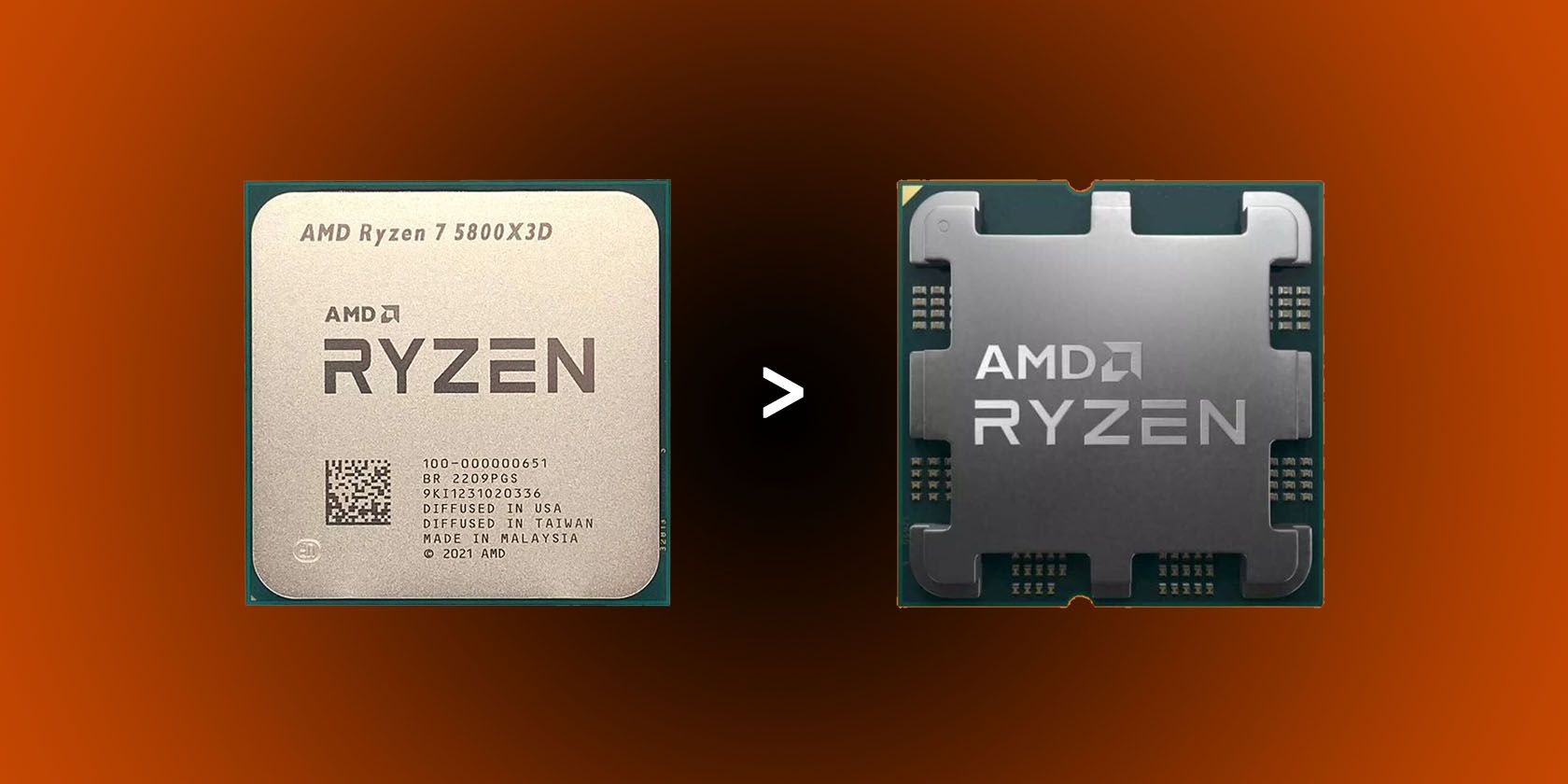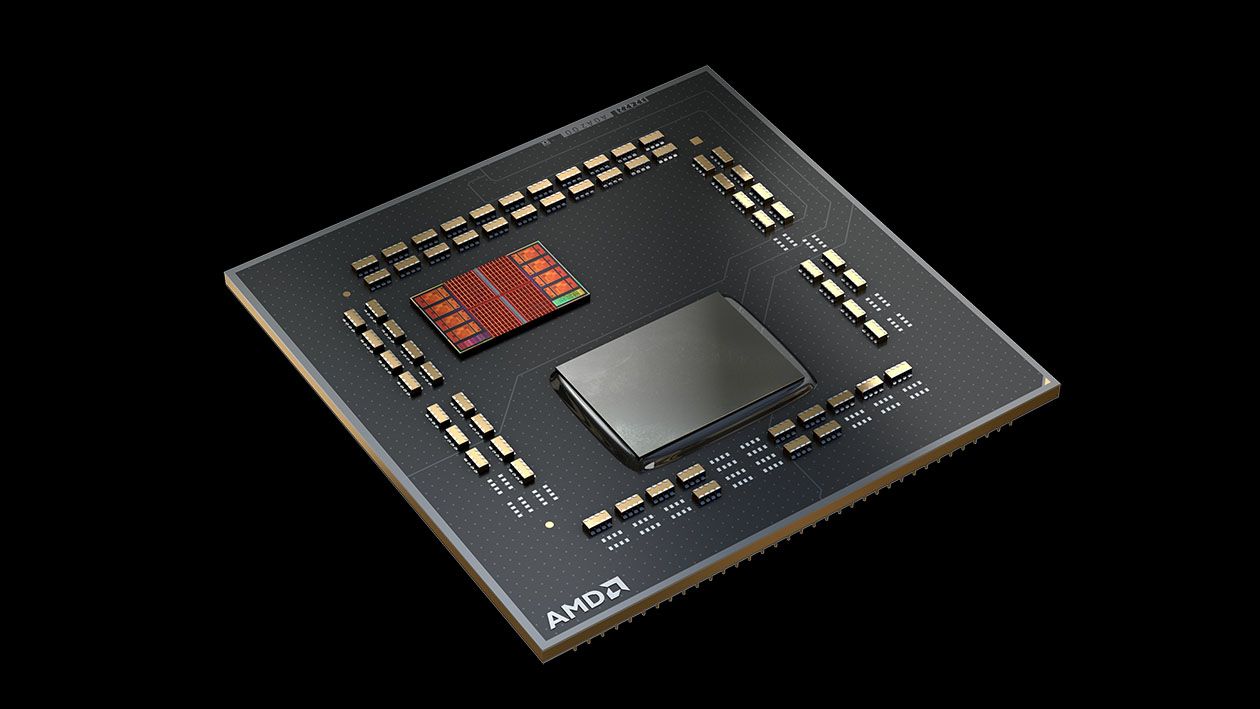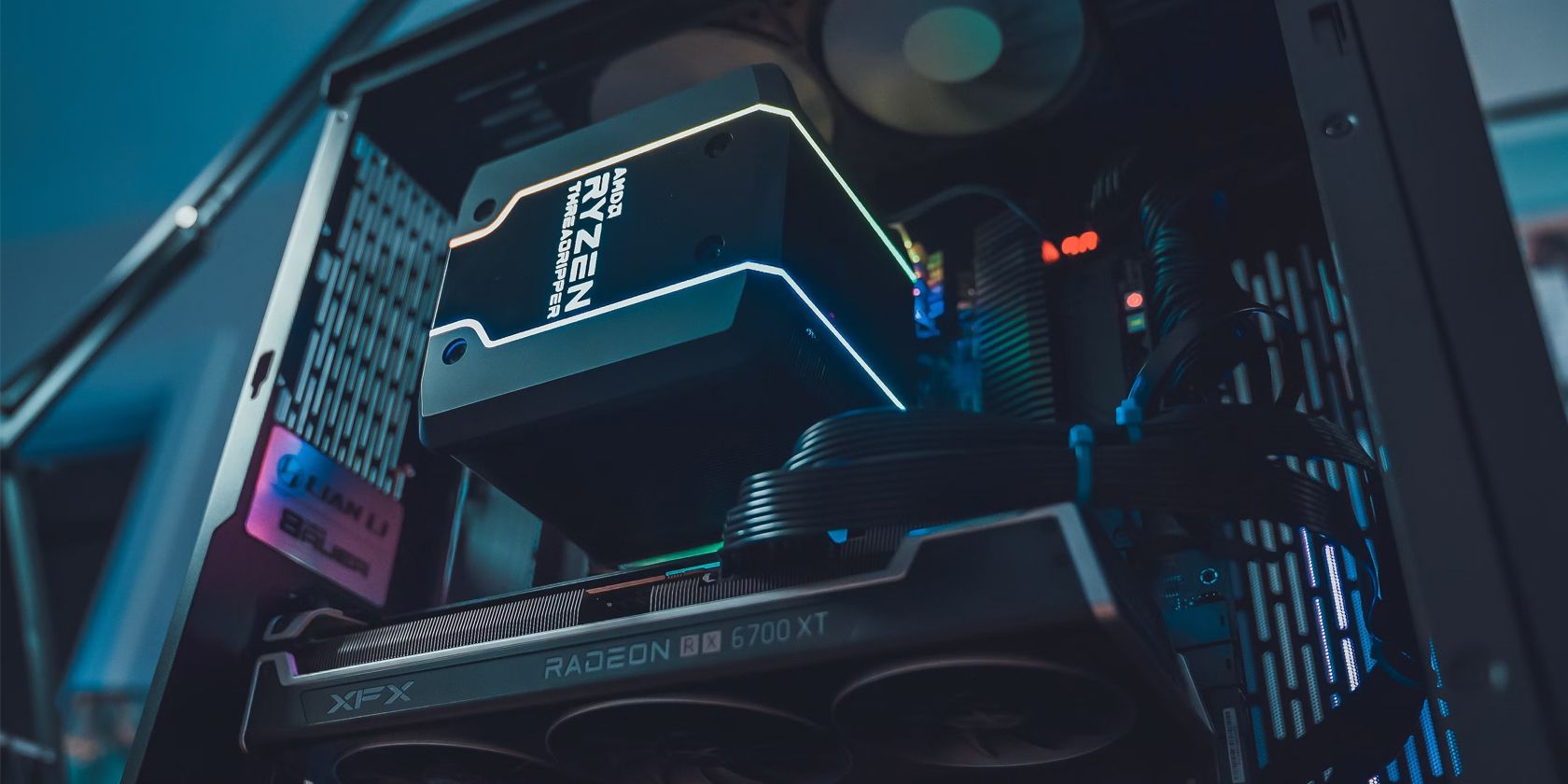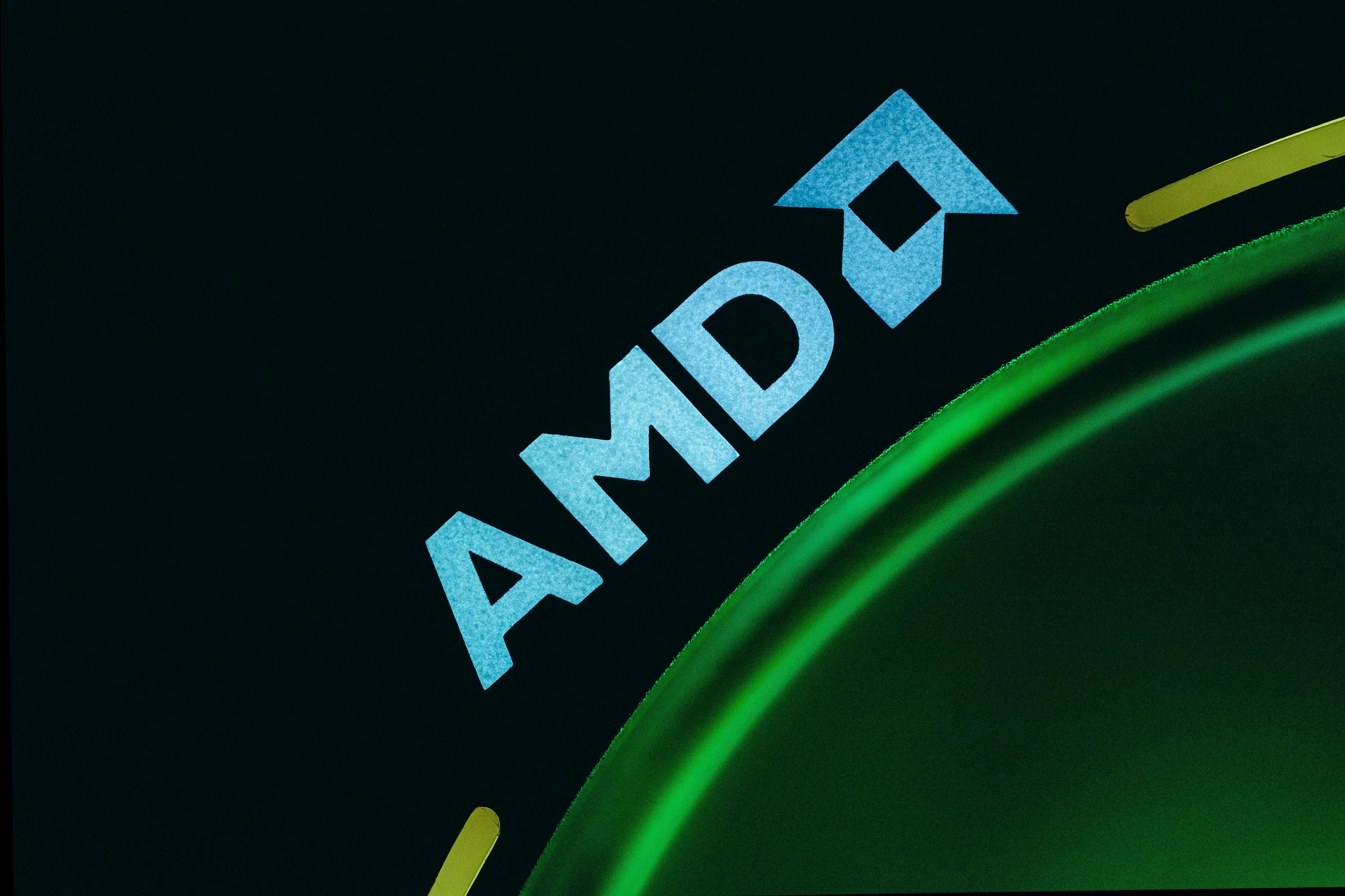The Ryzen 7000 series of CPUs are among the very best CPUs for gaming. The Zen 4 architecture carries great generational gains, allowing the CPUs to get near the fabled 6GHz line. But before those chips were released, AMD released one last AM4 chip, the Ryzen 7 5800X3D, as a stopgap competitor to Intel's 12th-Gen CPU lineup.
As it turns out, though, the 5800X3D might actually be better than AMD was expecting, as it's also been compared to Ryzen 7000 chips and has outperformed Intel's 13th-Gen Raptor Lake CPUs, too. But is it really that good?
What Is Ryzen 7 5800X3D?
The Ryzen 7 5800X3D belongs to AMD's range of Zen 3 CPUs and was first released in 2020. More specifically, it's a 2022 variant of the Ryzen 7 5800X, a CPU with eight cores and 16 threads fabricated on a 7nm process that delivers processing speeds up to 4.40GHz.
When it came out in early 2020, the Ryzen 7 5800X sat in an awkward spot. It was priced at $450—the lower-end Ryzen 5 5600X with just two fewer cores was $300, and the much-better Ryzen 9 5900X was just $100 more, at $550. So how did it transform from an ugly duckling to holding the gaming crown with the Ryzen 7 5800X3D?
Basically, it was all thanks to 3D V-Cache.
3D V-Cache pretty much just stacks multiple layers of L3 cache to make it bigger. The bigger the L3 cache, the more instructions can be stored and quickly retrieved by a CPU within itself rather than having to grab stuff from RAM.
When AMD launched the Ryzen 7 5800X3D, it promised amazing performance gains—a mid-range CPU belonging to the Ryzen 5000 range, originally designed to compete against Intel's 10th-Gen CPUs, was able to beat the Intel Core i9-12900K by just adding 3D V-Cache. Some were skeptical, but once the CPU launched, real-life performance numbers showed the 5800X3D was beating Intel's best to date.
This all sounds great. But as it turns out, the 5800X3D might be better than AMD thought—to the point it's putting its own Ryzen 7000 range in jeopardy. But is it really better?
Is the Ryzen 7 5800X3D Better Than Ryzen 7000 Chips?
The answer is more complicated than a simple yes or no, but as it turns out, it may be better in some scenarios. As a reminder, the Ryzen 7 5800X3D has 3D V-Cache, while the Ryzen 7000 CPU range doesn't.
Comparing the Ryzen 7 5800X3D to its closest AMD Zen 4 relative, the Ryzen 7 7700X (as a reminder, they both have eight cores and 16 threads), the newer processor has the edge on many productivity tasks, as you might imagine. With better, faster cores, that part isn't really in question. But when we're talking gaming, that's a closer battle than what you might think.
As per side-by-side tests, the Ryzen 7 5800X3D is usually just as good as the Ryzen 7 7700X in games, with the 7700X usually having the edge. But in some games, like Shadow of the Tomb Raider, the 5800X3D actually performs better.
Even when you put it against the Ryzen 9 7950X, AMD's most expensive CPU with a whopping 16 Zen 4 cores and 32 threads, the venerable 5800X3D remains surprisingly competitive, managing to get performance numbers that are almost as good, and in some cases, just as good.
This doesn't mean that AMD's new CPUs are bad—they're great. But it does go to show that 3D V-Cache is a huge game changer and makes us excited about the prospects of what it could do if it were to be paired with Zen 4 CPUs. Unfortunately, it also makes us question if the Ryzen 7000 range is even worth buying for some folks.
Why Don't AMD Zen 4 CPUs Have 3D V-Cache?
We don't have 3D V-Cache on Zen 4 chips right now, but that doesn't mean we won't see them down the road. Rumor says that AMD has 3D V-Cache variants of Ryzen 7000 CPUs in the works, which will presumably be marketed as Ryzen 7000X3D whenever they're out.
But why don't we have them now? The most likely answer is that AMD is having trouble making them, and it can't switch its resources to make 3D V-Cache-equipped Zen 4 CPUs as production lines are busy with the 5800X3D. Once AMD stops making that, it can switch to mass-producing Zen 4 3D CPUs—that will likely happen around 2023. Until then, this is what we have.
Should You Buy a Ryzen 7 5800X3D Instead of a Ryzen 7000?
If you want a PC that works great right now, sure. But it might not make much sense for something you want to keep around long-term.
The Ryzen 7 5800X3D is an AM4 CPU, a socket that's being deprecated in favor of AM5 with the launch of Ryzen 7000 CPUs. The problem is that the platform built around that AM4 socket will also age from here. We're talking, of course, about PCI Express Gen 4.0 and DDR4 memory.
That can be both a blessing and a curse. On one hand, it means a Ryzen 7 5800X3D PC will be way cheaper to get into since motherboards, RAM, and other parts will be cheaper, as well as the CPU itself. But on the other hand, this is probably the last AM4 CPU AMD will ever make—the last one worth buying, at least. You won't be able to upgrade from your current setup down the road unless you're willing to re-purchase several parts of your PC.
Getting a Ryzen 7000 CPU will get you an all-around better CPU, not just better at gaming, and it will be based on a platform that will be supported for years to come. But AM5 motherboards and DDR5 RAM are more expensive.
Pick Your Poison
The fact that the Ryzen 7 5800X3D performs better in a number of games is pretty impressive and might seem tempting, but if you want a computer with better chances of upgrading down the road, get a Ryzen 7000.




